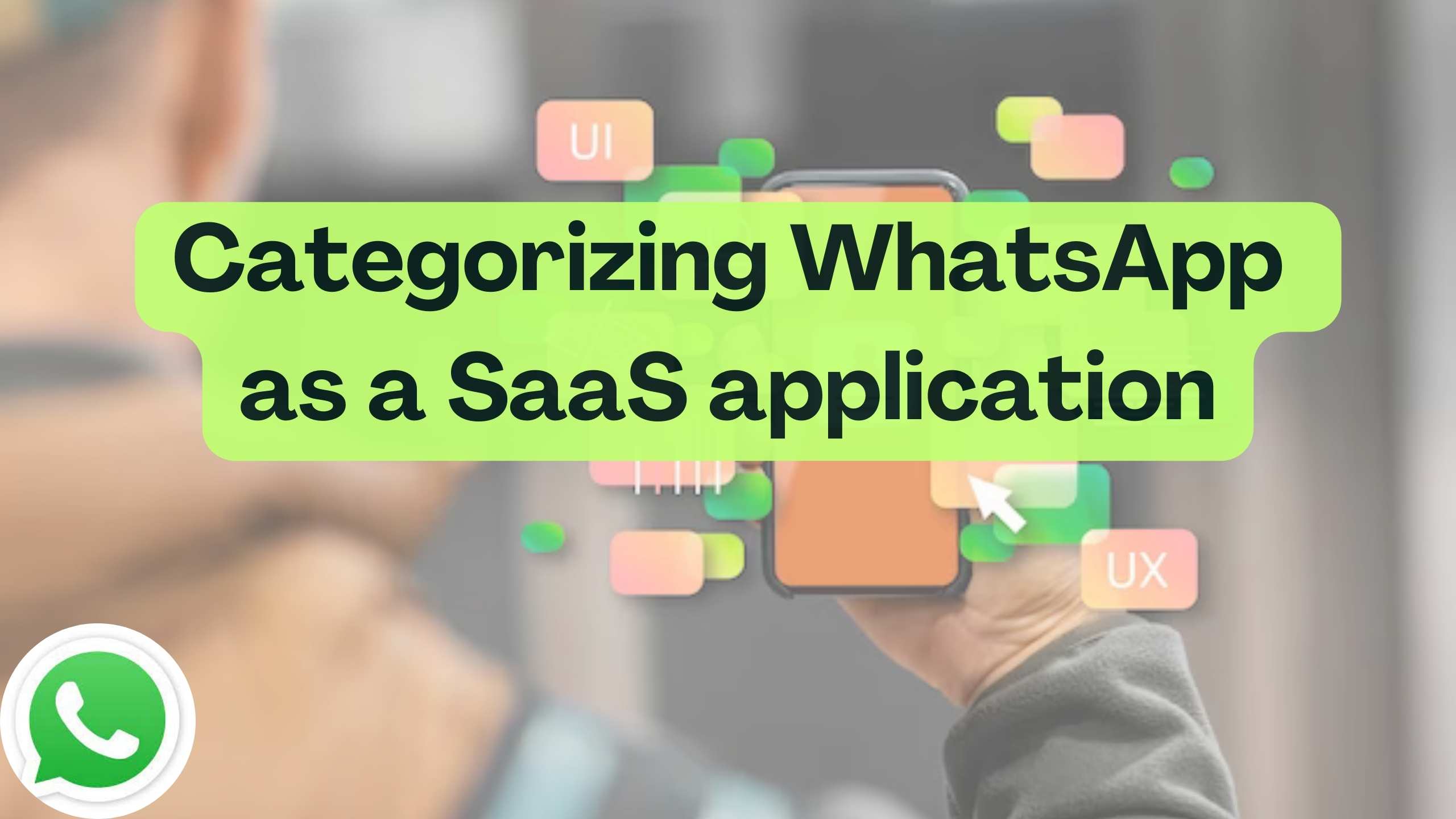Categorizing WhatsApp as a SaaS application
- Expense Management Software Credit Cards Investing Business Solutions User Experience


Categorizing WhatsApp as a SaaS Application: A Comprehensive Analysis
Is WhatsApp an example of SaaS? This inquiry has sparked debates and confusion within the tech community. In this detailed exploration, we will scrutinize the characteristics of Software as a Service (SaaS) to categorize WhatsApp accurately. Additionally, we’ll delve into five prominent SaaS products to provide a holistic understanding of the SaaS subscription stack.
Understanding SaaS
Before categorizing WhatsApp, let’s establish a robust understanding of the key attributes of SaaS. Software as a Service is a cloud-based software distribution model where applications are hosted by a third-party provider and made accessible to customers over the internet. The hallmark features include ease of accessibility, automatic updates, and a subscription-based pricing model.
Is WhatsApp a SaaS Application?
WhatsApp, renowned as a messaging app, exhibits several characteristics aligned with SaaS. It offers a service accessible over the internet, features automatic updates, and follows a subscription-based model for its business-oriented version, the WhatsApp Business API. It’s crucial to note, however, that the traditional WhatsApp users don’t pay directly for the service, creating a unique hybrid model that combines elements of SaaS and free-to-use applications.
Considering these nuances, WhatsApp emerges as a distinctive player in the software landscape, blending features of SaaS with the accessibility of a widely-used communication platform.
Relevant SaaS Products
To broaden our perspective on the SaaS landscape, let’s explore five noteworthy products:
- Slack – Slack revolutionizes team communication with channels, where teams can communicate and collaborate in real-time, making it an essential tool for remote and in-house teams alike.
- Asana – Asana is a project management tool that facilitates task management, project tracking, and collaboration, providing a centralized platform for teams to streamline their workflow.
- Trello – Trello offers a visually intuitive project management system using boards, lists, and cards, making it an ideal choice for individuals and teams seeking simplicity and flexibility.
- HubSpot – HubSpot is an all-in-one platform for inbound marketing, sales, and customer service, empowering businesses with tools to attract, engage, and delight customers.
- Zoom – Zoom is a leading video conferencing solution known for its reliability and user-friendly interface, catering to the remote communication needs of businesses and individuals.
These products showcase the diversity within the SaaS ecosystem, offering a range of services from communication and project management to marketing and video conferencing.
Conclusion
In conclusion, WhatsApp’s hybrid nature, combining elements of SaaS with a free-to-use model, sets it apart in the software landscape. As technology continues to evolve, we may witness more applications adopting similar traits, blurring the lines between traditional SaaS and freemium models.
If you’re eager to manage your SaaS subscriptions more effectively and explore exclusive deals, Subscribed.FYI is your ultimate all-in-one solution. Whether you’re a freelancer or part of a small team, Subscribed.FYI simplifies decision-making, enhances productivity, and provides comprehensive insights into a variety of SaaS tools. Unlock secret deals, save big, and effortlessly manage all your subscriptions in one place. Sign up for free today and experience the benefits of a centralized platform for SaaS information.








